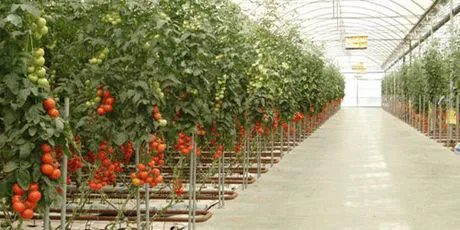Although the winter and spring tomato campaign has been affected by unusual weather conditions, with shortages in the winter and oversupply in the month of May, "we can talk about a campaign with complications, but with a balanced overall outcome," says Jorge F. Brotóns, president of Bonnysa, assessing the current state of affairs for Spanish tomatoes.

In recent times, the large increase in the quota of Moroccan tomatoes and the technological advantages of the Netherlands make them two great adversaries that test the competitiveness of Spanish tomatoes.
"Competition from third countries is very aggressive," continues Brotóns. On the one hand we have the Netherlands, which by means of a cogeneration system applied to greenhouses has extended its production schedule, covering almost 10 months (March/December); on the other, we have the increase in Moroccan exports, which coincide with our main production cycle. The Alawite country has doubled its export volumes over the past 10 years, since the EU has not been able to control and enforce the existing agreement establishing certain quotas and entry prices. This situation keeps us on our toes, making it hard to differentiate ourselves and be competitive."
With the arrival of spring, in addition to the Netherlands, other countries of central and northern Europe, such as Germany, Belgium, France, United Kingdom and Poland also enter the market, with the consequent increase in supply; however, Brotóns assures that demand for Spanish tomatoes in countries like the UK, Germany and Scandinavia remains stable, "because we are able to provide a continuity in terms of flavour and quality that other Central European countries are not able to achieve."
With around 600 hectares of greenhouses in properties located in the provinces of Alicante, Murcia, Almeria and Tenerife, Bonnysa cultivates and supplies all kinds of varieties, 365 days a year, including round, Beef, T.o.V., Pear, Cherry and Cherry on the vine and Cherry-Pear tomatoes. "We are always open to introducing new varieties that bring added value to our customers."
"We base our differentiation in the expertise acquired as producers and marketers over the past 55 years, guaranteeing a continuity in quality throughout the year, product innovation, the use of highly modern production techniques, sustainability, competitiveness, reliability and honesty."
Other than by Spanish retail chains, the Bonnysa brand is sold in the UK, Germany, the Netherlands, Scandinavia, Russia and, to a lesser extent, in France and Eastern Europe.

 BONNYSA Agroalimentaria
BONNYSA Agroalimentaria

 BONNYSA Agroalimentaria
BONNYSA Agroalimentaria